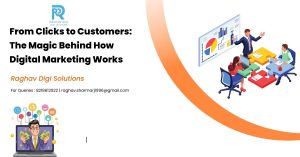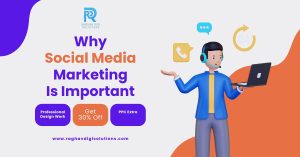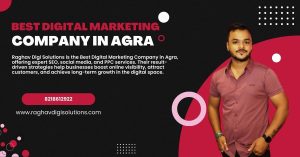Ever noticed those ads popping up right at the top when you search for something on Google? That’s Pay-Per-Click (PPC) advertising in action. Businesses only pay when someone clicks on their ad, making it one of the most efficient marketing strategies today. PPC Advertising Explained How Businesses Turn Clicks Into Cash Let’s dive in.
Understanding the Basics of PPC
At its core, PPC is an online advertising model where advertisers bid to display ads to users searching for related products or services.
- How PPC Works: Imagine an auction where businesses compete to show their ads. The highest bidder doesn’t always win—it’s also about the ad’s quality and relevance.
- The Role of Search Engines: Platforms like Google or Bing host these auctions. When a user types a query, the system instantly decides which ads to show.
- PPC vs. Organic Marketing: Organic SEO builds long-term visibility. PPC, on the other hand, gives immediate results—but at a cost.
The Core Components of PPC Campaigns
- Keywords – Think of them as the bait. The right keywords attract the right audience.
- Ad Copy – A compelling ad convinces users to click. This is where creativity meets strategy.
- Landing Pages – The final destination where conversions happen. If your landing page isn’t optimized, clicks won’t turn into sales.
Popular Platforms for PPC
- Google Ads: The giant of PPC, covering billions of searches daily.
- Bing Ads: Less crowded, often cheaper clicks.
- Social Media Platforms: Facebook, Instagram, and LinkedIn let businesses target users based on demographics, interests, and behavior.
How PPC Campaigns Are Structured
- Campaigns, Ad Groups, Ads: A campaign contains multiple ad groups, and each group contains different ads targeting specific keywords.
- Bidding Strategies: From manual CPC bidding to automated strategies like Target CPA or Maximize Conversions.
- Quality Score: Google assigns a score (1–10) based on ad relevance, landing page experience, and click-through rates. Higher scores mean lower costs.
Why Businesses Invest in PPC
- Quick Visibility: Instead of waiting months for SEO, PPC gets you noticed instantly.
- Targeted Marketing: You can target people by location, age, interests, or even device type.
- Scalability: Start with a small budget and scale as results come in.
PPC vs. Other Digital Marketing Models
- PPC vs. SEO: SEO is a marathon; PPC is a sprint. Both work best together.
- PPC vs. Social Media Marketing: Social media builds brand awareness, PPC drives direct conversions.
- PPC vs. Display Ads: Display ads build visibility, PPC captures intent.
How Businesses Turn Clicks into Cash
Clicks are great, but conversions pay the bills. Businesses use tools like Google Analytics and conversion tracking to measure what happens after a click. By optimizing landing pages, testing offers, and tracking ROI, businesses ensure they’re not just getting traffic—but profits.
Effective PPC Strategies
- Keyword Research: Use tools to find high-intent keywords.
- Negative Keywords: Block irrelevant searches to save money.
- A/B Testing: Test different ad copies, images, and landing pages.
- Retargeting: Show ads to users who previously visited your site but didn’t buy.
Common Mistakes Businesses Make in PPC
- Targeting broad keywords that drain budgets.
- Sending users to generic homepages instead of optimized landing pages.
- Forgetting mobile users, even though most searches happen on phones.
The Cost Factor in PPC
- Average Cost: PPC costs vary widely. Some industries pay $1 per click; others (like law or finance) pay $50+.
- Factors Affecting CPC: Competition, location, ad quality, and keyword type.
- Budget Tips: Start with a daily cap, monitor results, and scale gradually.
Case Studies: Businesses Winning with PPC
- Small Business: A bakery ran Google Ads for “birthday cakes near me” and doubled weekend orders.
- E-commerce: Online stores use PPC to retarget abandoned carts, recovering lost sales.
- Local Businesses: Plumbing companies thrive on “emergency plumber near me” keywords.
Future of PPC Advertising
The PPC landscape is evolving:
- AI & Automation are helping businesses optimize campaigns.
- Voice Search means ads will adapt to conversational queries.
- Smarter Targeting lets brands personalize ads at scale.
Tips for Beginners Starting PPC
- Begin with a modest budget and learn as you go.
- Use long-tail keywords—they’re cheaper and more targeted.
- Monitor campaigns daily; small tweaks often make a big difference.
Conclusion
Pay-Per-Click advertising isn’t just about getting clicks—it’s about turning those clicks into real money. From keyword research to landing page optimization, every step matters. Whether you’re a small business owner or a big brand, PPC can give you the edge in today’s fast-paced digital world.
FAQs
1. What is the main purpose of PPC advertising?
To drive targeted traffic to a website and generate conversions like sales, leads, or sign-ups.
2. How quickly can businesses see results with PPC?
Usually within hours or days of launching a campaign, unlike SEO which takes months.
3. Is PPC better than SEO?
Both are essential—PPC gives instant results, SEO builds long-term growth.
4. Can small businesses afford PPC?
Yes! Even with small budgets, local targeting can bring great results.
5. What skills are needed to run PPC campaigns?
Keyword research, ad copywriting, data analysis, and a good understanding of consumer behavior.
To Know More: Best PPC Services Company In Sikandra Agra, Affordable PPC Services In Agra




